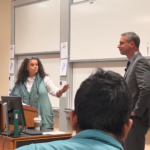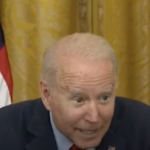Third Grade Angel
SHICKSHINNY, Penn. — The Rutherford Institute has come to the aid of a Pennsylvania elementary school student who was prohibited by school officials from passing out Christian pamphlets to her classmates during non-instructional time. Institute attorneys contacted Northwest Area School District officials after being contacted by the family of third grader Felicia Clark. In their letter to school officials, Institute attorneys are demanding that the unconstitutional prohibition imposed upon Felicia’s expression of her religious beliefs be lifted, pointing out that the school’s actions violate federal and state laws regarding free speech.
“It’s a sad reflection on the state of our public schools that so many school officials remain ignorant about the rights enshrined in the Constitution, especially the First Amendment’s right to free speech and religious expression,” said John W. Whitehead, president of The Rutherford Institute. “Rather than stifling speech in violation of the Constitution, as they have done in Felicia Clark’s case, school officials should be teaching their young charges about their rights, and the best way to do that is by championing the rights of students to communicate their ideas to one another, religious or not.”
Felicia’s grandmother, Susan Robbins, contacted The Rutherford Institute after Felicia Clark, a third grader at Northwest Intermediate School in Shickshinny, Pennsylvania, came home crying from school. Felicia’s teacher had informed her that she could no longer hand out Christian tracts on the playground or elsewhere at school because it was against the law. When confronted by the grandmother, the principal affirmed the teacher’s directive and stated that the prohibition was being imposed because some parents had complained about the materials Felicia handed out.
In its letter to the school principal, attorneys for The Rutherford Institute point out that forbidding Felicia from passing out religious tracts violates her right to free speech under the First Amendment and the Pennsylvania Constitution. The letter also cites regulations of the Pennsylvania State Board of Education which specifically recognize the right of students to distribute literature and pamphlets while at school, and which provide that this right of expression may be limited only if the student’s speech substantially interferes with the educational process, threatens serious harm to the school community, encourages unlawful activity, or interferes with the rights of other students.
According to the letter, a blanket prohibition on Felicia’s speech is improper and any restriction should be limited to those students whose parents request their children not receive the material. Insisting that Felicia be allowed to exercise her right to free expression, Institute attorneys have asked for a response from school officials by the close of business on Friday, March 25.




